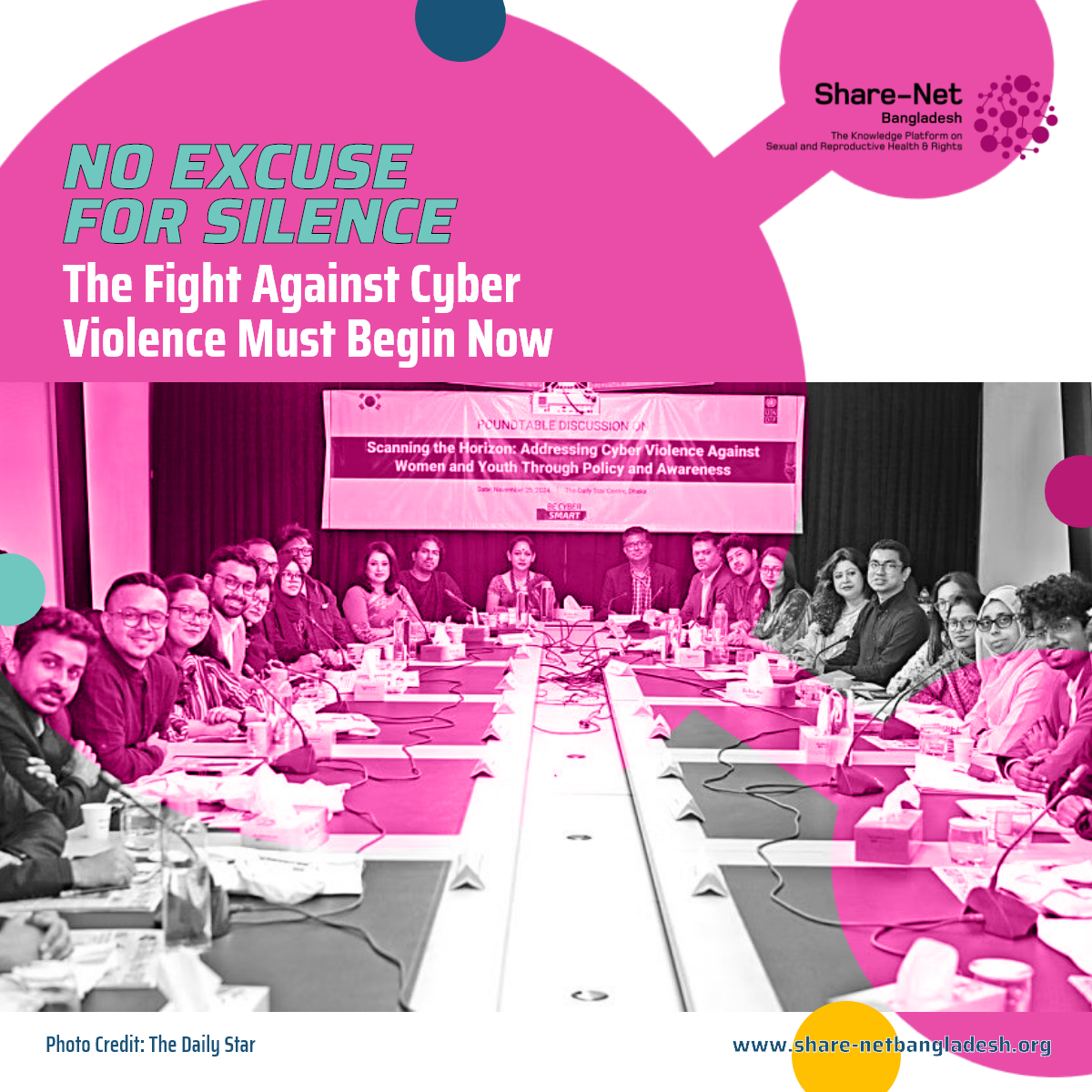No Excuse for Silence: The Fight Against Cyber Violence Must Begin Now
The UNDP and The Daily Star recently brought together a powerful group of experts, activists, and policymakers in a roundtable titled “Scanning the Horizon: Addressing Cyber Violence against Women and Youth through Policy and Awareness.” The urgency was unmistakable: the internet is no longer just a space for connection—it has become a battleground for safety, especially for women and youth.
“Cyber violence is not just a digital issue—it’s a deeply human one,” said Shahreen Tilottoma, Project Analyst at UNDP Bangladesh, who presented the keynote. She introduced the SDG Partnership project jointly run with the UNDP Seoul Policy Centre, supported by the Korean Government, and implemented with the Bangladesh Police Cyber Support for Women. Their work spans research, legal review, and digital campaigns—including Be Cyber Smart, CyberLens, and the innovative interactive video Screen-er Arale with UN Women.
Yet even as awareness grows, systemic gaps remain. “Misinformation and deepfake videos weaponise women’s identities,” said AFP’s fact-checking editor Qadaruddin Shishir, noting how disinformation campaigns often target women for political or financial gain. Sharmin Islam from UNDP’s Gender Team echoed this concern: “Digital access has opened economic doors for women entrepreneurs but also exposed them to harassment, surveillance, and abuse.”
From the frontlines, young changemakers like Sadat Rahman of CyberTeens called out the absence of effective youth engagement by law enforcement. “We’ve been working with teenagers for five years, but we still face institutional indifference. Reporting cyber complaints online should be the norm by now.”
Lawyers and rights organisations highlighted how current legal frameworks are failing. “The Penal Code of 1860 cannot solve 21st-century problems,” argued Barrister Tasnuva Shelley. “Judges dismiss 80% of cybercrime cases due to lack of training or digital forensic evidence.”
Others focused on prevention through digital literacy. “Women need tailored toolkits, not generic sessions,” urged Shoeb Abdullah, a digital rights activist. BLAST’s Manisha Biswas stressed the need for consistent law enforcement training, while UN Women’s Sharbana Datta advocated for a centralised, accessible platform of resources.
The private sector, too, has a role. Sharmin Ahmed of Mutual Trust Bank revealed that only 30% of their bank accounts are held by women. “Many female entrepreneurs are scammed or blackmailed. Public-private partnerships can change this—starting with awareness.”
Ultimately, as Professor Golam Sarwar of Dhaka University reminded the room: “We have symbolic empowerment, not substantive power. Laws exist, but the societal power structure remains unchanged.”
That’s the uncomfortable truth: the tools for justice exist, but the will to enforce and adapt them still lags. To end cyber violence, we must listen to women, centre youth, reform institutions, and most importantly—act. Because silence is no longer an option.
Source: The Daily Star

